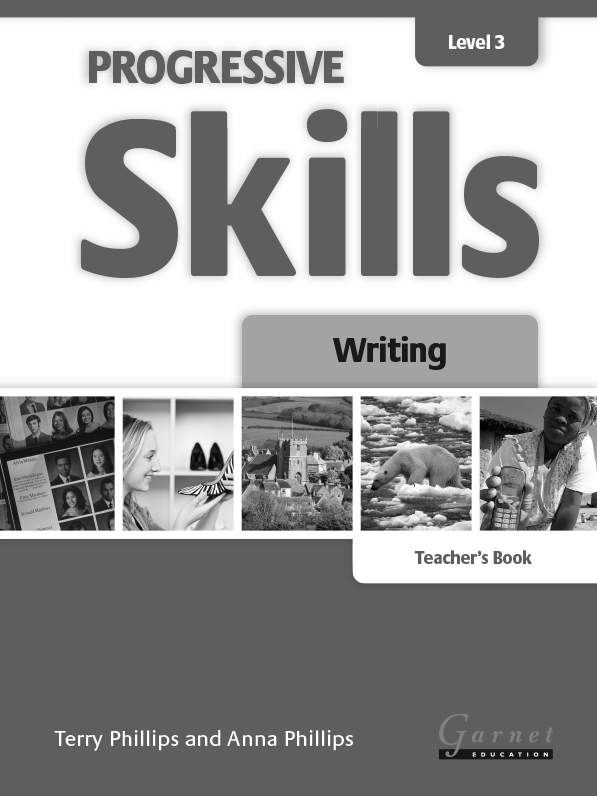About the book
Progressive Skills: Writing Level 3
Do you need English in your studies? Then you need Progressive Skills: Writing Level 3.
Learn how to write:
- Argument essays (write thesis statements)
- Description essays (describe graphics)
- Discussion essays (recognize the thesis)
- For and against essays (compare with adjectives and nouns)
- research reports (write topic sentences)
Topics include:
Remembering and forgetting: Rehearsal and prompts
Friends and family: Decisions in families
Managing to be successful: For and against
Natural cycles: Energy and the oceans
Customs: origins and effects: Cultural change
Did you know? Progressive Skills books are also available in combined, four-skill editions, with added Portfolio materials: Progressive Skills in English Level 1,Progressive Skills in English Level 2, Progressive Skills in English Level 3 and Progressive Skills in English Level 4.
Contents
Book maps
Introduction
Theme 1: Remembering and forgetting
Theme 2: Friends and family
Theme 3: Managing to be successful
Theme 4: Natural cycles
Theme 5: Customs: origins and effects
Workbook answers
Word list
Author details
Terry Phillips has worked in ELT for more than 35 years as a teacher, teaching supervisor, manager and language school owner. As a consultant, he has worked in more than 20 countries in all parts of the world, advising state and private language institutions on all aspects of school management.
For the last ten years, he has been a full time freelance writer with his wife Anna, producing more than 160 published books in ELT. Although he and Anna have worked for all the major publishers, all recent works have been for Garnet Education.
Terry is the series editor of the English for Specific Academic Purposes series for Garnet Education, which aims to prepare students to entry into a particular faculty for English-medium tertiary education. The series won the ESU award in 2009.
Anna Phillips has worked in ELT for more than 30 years. She has worked as a teacher of both multilingual and monolingual classes, with teenagers and adults, in both the UK and abroad.
Anna began writing materials for special courses as a senior teacher working for the British Council in Oman. Later, as Director of Studies and Owner-Manager of the International House school in Oman, she spent much of her time adapting and developing materials, owing to the lack of suitable course books for the needs of the students. During this period Anna was also extensively involved in teacher training, both in-service and also for CELTA and DELTA. She was also an examiner for CELTA and travelled extensively throughout the Gulf region in this role.
In 1989 Anna completed her MA (TEFL) from Reading University.
Since returning to the UK, Anna has worked with Terry Phillips on a large number of textbooks for a variety of publishers. Anna’s particular interest is making course books more ‘user friendly’ for teachers who are not native speakers of English.
Reviews
"...the fact that there is a systematic progression from analysis to production, and a discussion of the social reasons for texts being written the way they are (for example why impersonal style matters in academic communication) is refreshing... One of the stand-out features of the series for this reviewer is its emphasis on what it describes as ‘syntactic grammar’. Rather than focusing on the grammar of the verb phrase (the main concern of much grammar study in general EFL), the authors choose to pay attention to the structure of the noun phrase, together with the role of sentence adverbs in information structure and the use of tense in hedging."
Christopher Tribble, King's College London, ELT Journal



